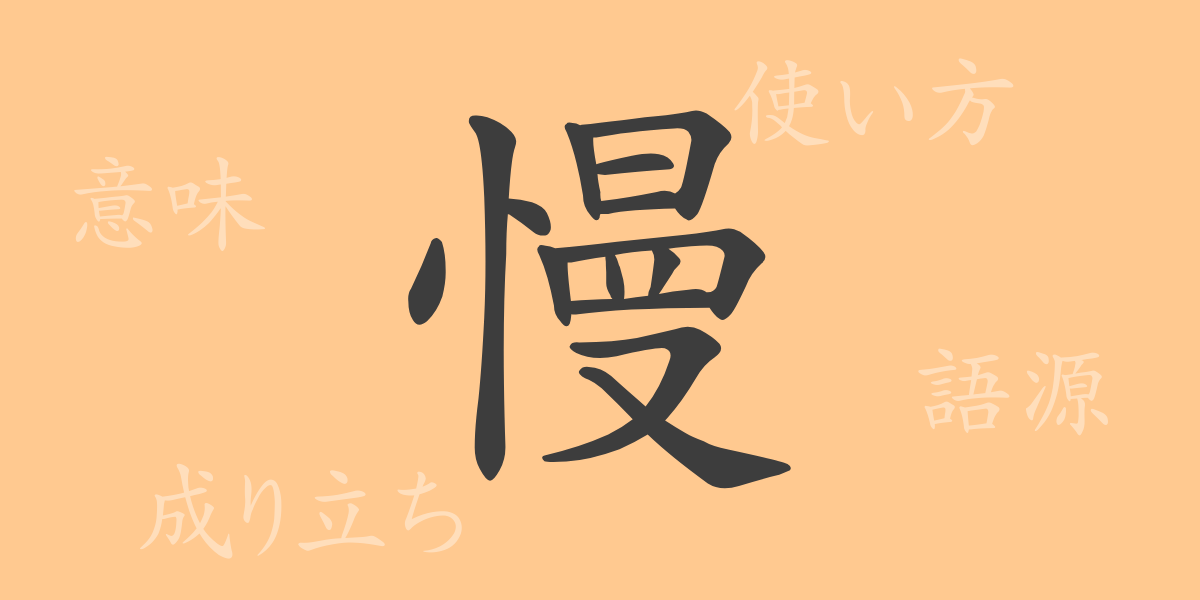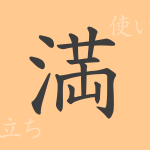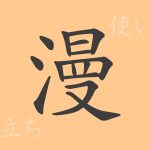In the Japanese language, there are many kanji characters with profound meanings, and among them, the kanji “慢” (man) possesses a unique resonance and significance. While you may frequently encounter “慢” (man) in daily life, there might be few opportunities to delve deeply into its essence and background. In this article, we will explore the origin, meaning, usage, and various idiomatic expressions and proverbs related to this kanji. Let’s embark on a journey to discover the depth of words together.
The Origin of 慢 (man)
The kanji “慢” (man) is a character that originated from ancient China, and its formation is quite intriguing. “慢” (man) is composed of “心” (heart) and “曼” (long or slow), where “曼” (man) carries meanings such as “long” and “slow.” Therefore, “慢” (man) originally signified a heart that is long and slow, and from there, it evolved into meanings associated with chronic conditions, arrogance, and conceit in modern usage.
The Meaning and Usage of 慢 (man)
In contemporary Japanese, “慢” (man) is primarily used in words like “傲慢” (gouman) and “自慢” (jiman), referring to attitudes of overestimating oneself. It encompasses meanings of self-satisfaction and looking down on others, and can also express complacency due to overconfidence, as seen in “慢心” (manshin). On the other hand, in Buddhist terminology, it is considered one of the “bonnou” (earthly desires), indicating mental distractions and attachments.
Reading, Stroke Count, and Radical of 慢 (man)
The kanji “慢” (man) is used in various forms within the Japanese language, and its readings and writing characteristics are as follows:
- Reading: In on’yomi (Chinese reading), it is read as “マン” (man), and it does not have a specific kun’yomi (Japanese reading).
- Stroke Count: It consists of 14 strokes in total.
- Radical: The radical is the “心部” (kokoro-hen), which represents the heart.
Idiomatic Expressions, Proverbs, and Their Meanings Involving 慢 (man)
There are numerous idiomatic expressions, proverbs, and phrases that include “慢” (man), each demonstrating the richness of Japanese expression. Here are some examples:
- 傲慢 (gouman): An attitude of being self-centered and looking down on others.
- 自慢 (jiman): Taking pride in oneself and talking about it to others.
- 慢心 (manshin): Becoming overconfident and complacent.
- 侮慢 (buman): Disdaining and looking down on others.
- 慢性 (mansei): Referring to something, such as an illness, that persists for a long time.
These idiomatic expressions and proverbs are often used to describe human psychology and behavior, and they are utilized in various scenes of interpersonal relationships and social life in the Japanese language.
Conclusion on 慢 (man)
The kanji “慢” (man), with its unique meaning and usage, adds depth to the Japanese language. It can serve as a prompt for self-reflection or help convey subtle nuances in human relationships. Through this article, we hope you gain an understanding of the diverse aspects of “慢” (man) and refine your sense of language use. Remember “慢” (man) as a key word that embodies the profundity of Japanese.

























